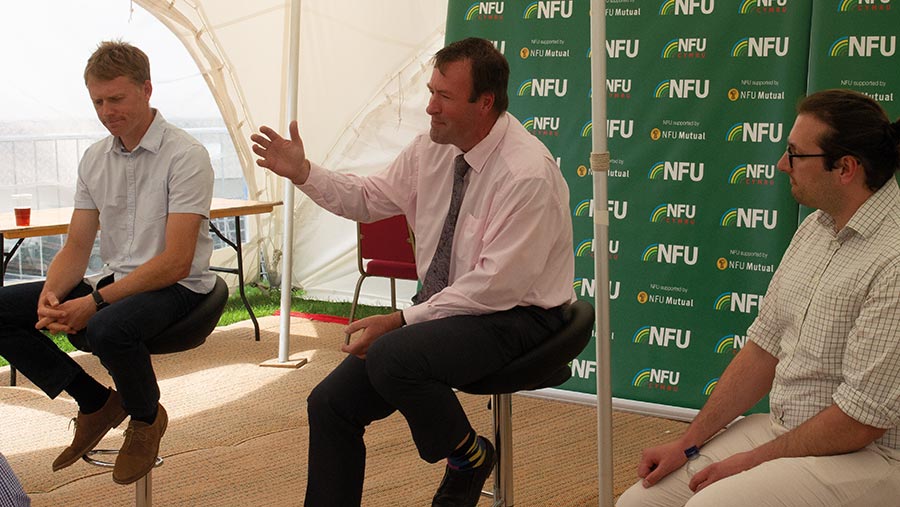Fears large landowners could ‘hoover up’ ELM funds
 Panellists Dan Burdett, Stuart Roberts and James Woodward © MAG/Philip Clarke
Panellists Dan Burdett, Stuart Roberts and James Woodward © MAG/Philip Clarke Fears are mounting that smaller family farms could lose out as a result of the transition to a new English farm policy based on paying farmers for the provision of public goods.
Addressing an NFU-organised panel at the recent South of England Show at Ardingly, West Sussex, Hampshire farmer Julian Gibbons said the transition to a new Environmental Land Management (ELM) scheme could see a further skewing of funds.
See also: Payment rates revealed for new Sustainable Farming Incentive pilot
“One of the major criticisms of the Basic Payment Scheme was that some very large farmers were getting very large sums of money,” he said.
“But within ELM, we could have exactly the same thing, which is fine if there is a large amount of money, but we all know that funding is going to be under pressure.”
Mr Gibbons pointed to one large landowner in Hampshire who was planning on rewilding his farm, which could “hoover up vast amounts of money” even though he was already one of the 20 richest people in the country.
Real worry
NFU deputy president Stuart Roberts agreed it was a real worry that funds would get swallowed up by large-scale projects.
“If people are delivering large public goods, and the scheme is ‘public money for public goods’, then by definition the larger the public good the more they will get,” he said.
On this basis, protecting water quality and flood alleviation could justify receiving significant sums of money.
“But I also see some areas that are not providing public goods and I think some of the rewilding stuff is crazy,” said Mr Roberts.
“Sharing the land with the environment and food production is fine, but not to the point where we massively intensify a small area of the country for food production, then let the rest go for rewilding.”
Mr Roberts also expressed doubts that the £3bn a year promised for the life of the current parliament would all stay in agriculture, given the pressures that were mounting on government finances.
Offshoring
James Woodward of food and farming alliance Sustain had similar worries about where future funding would end up.
“It needs to go to farmers who farm safely, and doing bits of habitat around their farms, linking up with their neighbours,” he said.
“As a country we need to find ways to be more self-sufficient, and to find more ways to grow more fruit and veg.
“But if we start taking large areas out of agriculture, we are simply going to be offshoring a lot of our environmental problems which is something we should not do.”
